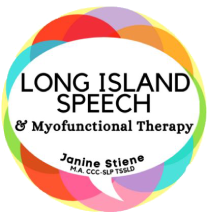Blog
Sometimes, people with expressive aphasia can be easily frustrated. Unlike, receptive language aphasia, people with expressive aphasia are usually aware of their language deficits and know what they want to say; they just can’t get it out. It’s kind of like when you have a word on the tip of your tongue. Another symptom of expressive aphasia can be ataxia, or drunken speech. People with aphasia typically have a weak side (usually the side opposite the affected side of the brain). Since the muscles are weak, it is difficult to make precise speech sounds, so the speech is slurred. One way to remember ataxia is: when you drink, you have to take a taxi; hence, ataxia is drunken speech. So, what are some ways you can help out at home?
Words on the tip of your tongue-
- Try playing word association games, like scattergories or Taboo. Scattergories gives you categories to work with and you have to come up with words in each category that begin with a certain letter. Taboo is a game where you have to get the other person to think of a word by describing it. Association games help with word finding difficulties by giving you other options to get out what you want to say; if you can’t think of a word, describe it using word associations. While it may take longer to get your message across, you will be able to communicate your wants and needs with other people.
Ataxia-
- If reading ability is preserved, this can be a good way to improve articulation. When you read out loud, you are forced to slow down your rate of speech because the printed words serve as a cue for pacing. If you think about it, you read slower than you speak, and when you read, you pronounce each word rather than using the jumbled mess we call speaking. For example, you wouldn’t see the words “going to” and read it as “gonna.” So reading out loud can help you to slow down and pronounce all of the sound you hear. It may not sound natural, especially at first, but reading is a good exercise that will help your articulators (like your tongue and lips).
- Overarticulation also can be helpful. While it may not feel very natural at first, words will come out clearer and be easier to understand. If someone with normal speech overarticulates, it will sound funny, but if you have slurred speech and weak tongue and lip movements, then overarticulation will sound closer to normal speech.




